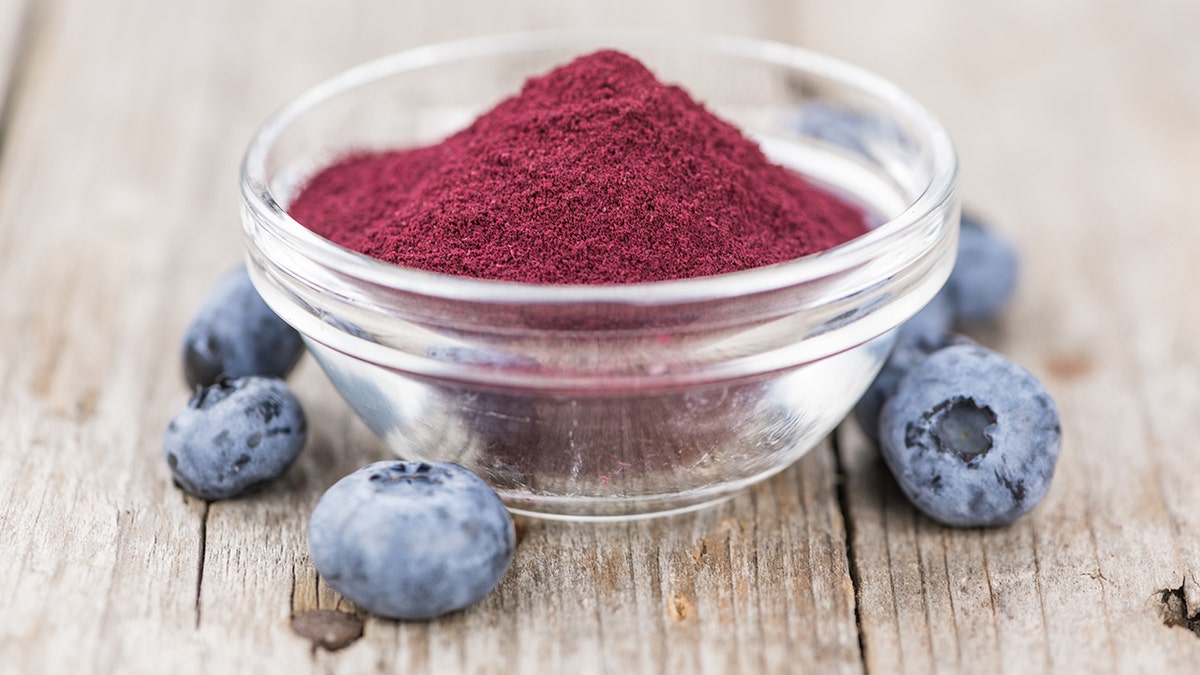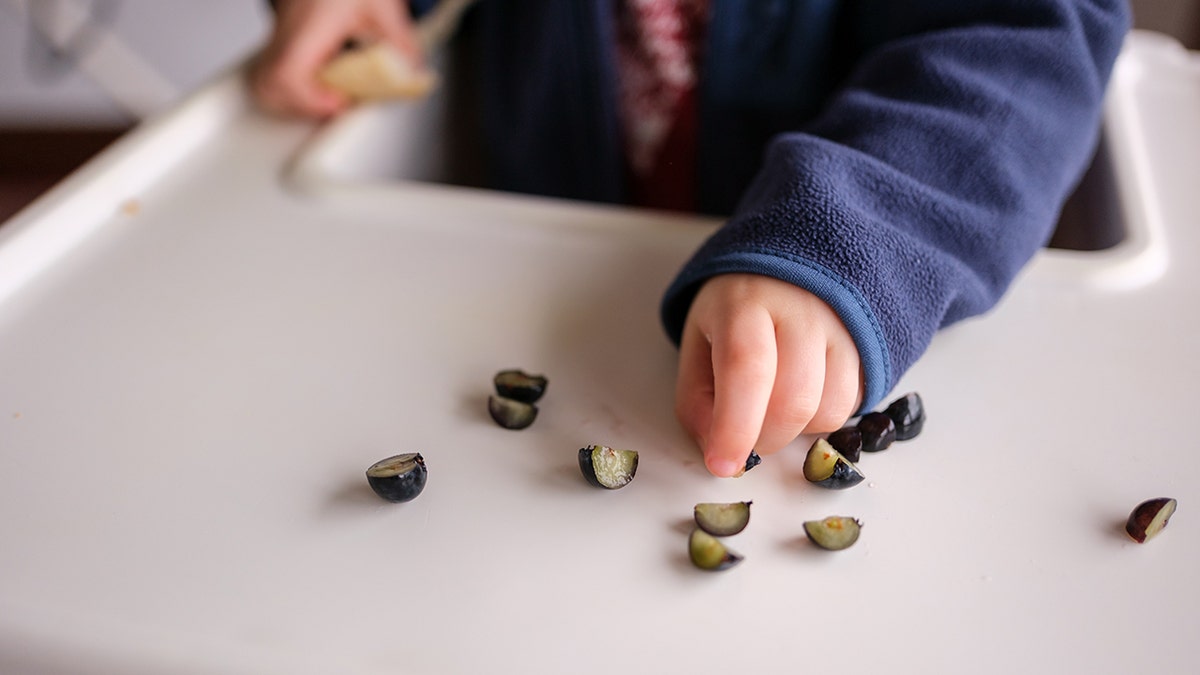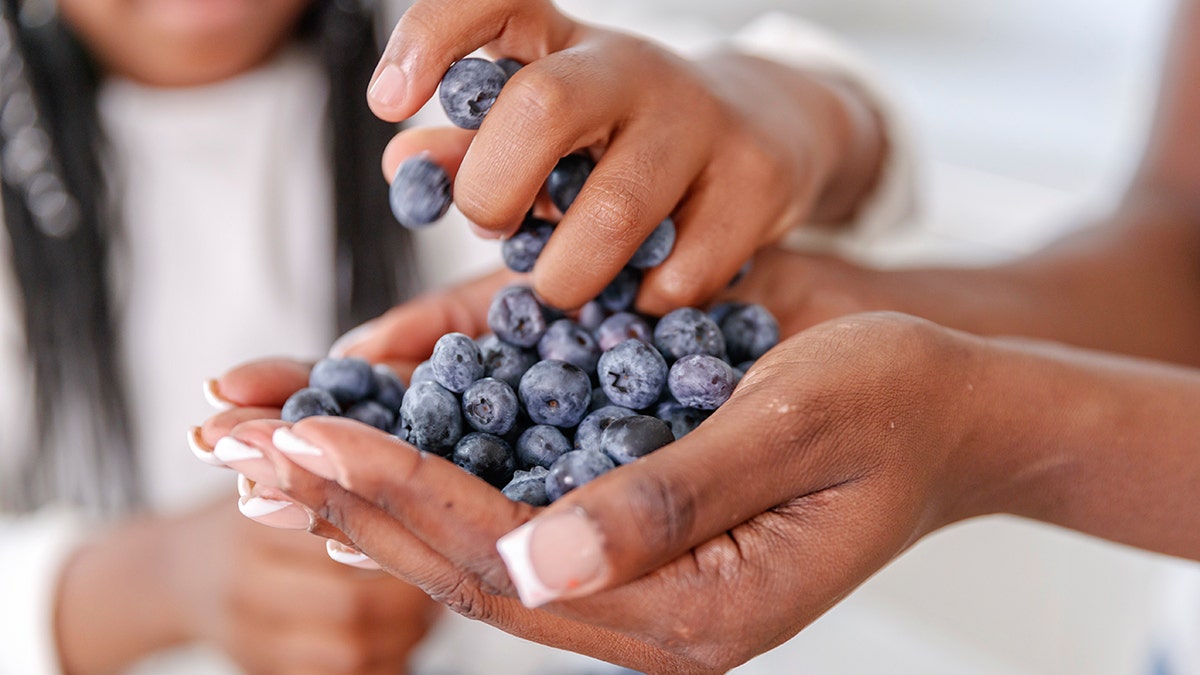

A daily dose of blueberries given to babies eased allergy symptoms and improved immune markers, a new study found — echoing past research in adults that linked the fruit to gut health and reduced inflammation.
Researchers at the University of Colorado Anschutz and Children's Hospital Colorado studied whether feeding blueberries to infants as one of their first solid foods could help strengthen the immune system, reduce allergy symptoms and support healthy gut development.
The research, published in the journals Nutrients and Frontiers in Nutrition, was funded in part by the U.S. Highbush Blueberry Council along with grants from the National Institutes of Health.
GRANDMOTHER URGES BUTTER FOR BABY, IGNITING FAMILY FEUD OVER CARNIVORE LIFESTYLE
The study followed 61 infants between the ages of 5 and 12 months living in the Denver area.
Each day, parents fed their babies either freeze-dried blueberry powder or a placebo powder alongside their regular feeding routine.

Early blueberry consumption may reduce allergy symptoms and support long-term health in babies, a new study indicates. (iStock)
The blueberry group got a packet of about 10 grams of freeze-dried blueberry powder — the equivalent of about 2 ounces of fresh blueberries — mixed into purées or breast milk.
Researchers collected stool and blood samples to track changes in the infants' gut bacteria, immune system biomarkers and allergy-related outcomes. They also tracked the babies' growth and overall dietary habits.
TWO OF THESE FRUITS A DAY CAN BOOST GUT HEALTH, FIGHT CANCER RISK, DOCTOR SAYS
At 12 months, the scientists found that the blueberry group showed improved symptoms in pre-existing allergies, a higher resolution of allergy-related issues and fewer new respiratory problems compared to the placebo group.
They also observed reduced inflammation, a stronger immune response and positive shifts in gut microbiota, which were considered beneficial for their immune systems, suggesting that blueberries may support a healthier microbiome-immune connection.

Half of the infants in the study were fed 10 grams of freeze-dried blueberry powder daily for seven months. (iStock)
Past research has shown that the gut microbiome and the immune system work together as microbes help train our defenses, and the immune system keeps them in check. When that channel is disrupted — including through poor diet, stress, some antibiotics or illness — it can raise the risk of infections, inflammation and disease.
Senior author Minghua Tang, Ph.D., an associate professor of pediatrics at the University of Colorado Anschutz School of Medicine's Section of Nutrition, said the study supports the idea that blueberries offer meaningful health benefits.
'FOOD IS MEDICINE' MOVEMENT MAY BE KEY TO REVERSING HEALTH DECLINE: HERE'S WHAT TO EAT
"Just a few blueberries a day could make a difference in supporting long-term health," Tang said in a statement. "We view infancy as a critical window of opportunity and what we introduce during this time can have lasting effects as children grow."
It can be difficult for parents to find research-backed solid foods to introduce to their infants, she added.

Early blueberry consumption may reduce allergy symptoms and support long-term health. (iStock)
"This study is a critical first step in filling that gap by offering real data on how a specific food like blueberries can improve your infant's health."
Earlier research in adults has found that blueberry drinks can boost levels of "good" gut bacteria like Bifidobacterium — a probiotic found in breast milk and fermented foods including yogurt and kefir — and help strengthen the gut lining, according to the researchers.

The study tested whether blueberries could boost health in breastfed infants. (Natalia Deriabina, Shutterstock)
Blueberries are also rich in anthocyanins, natural plant compounds that give the berries their deep color. Studies show that anthocyanins can calm inflammation and support healthy immune responses.
Still, the Colorado researchers noted that their trial was small and relied in part on parent-reported outcomes, factors that limit how broadly the results can be applied.
More work is needed to determine which blueberry compounds are responsible for the effects and whether other foods may have similar benefits.

Blueberries are rich in anthocyanins, natural plant compounds that give the berries their color. (iStock)
The research team included collaborators from Colorado State University, Purdue University, Umeå University in Sweden and University College Cork in Ireland.
Fox News Digital reached out to the study authors for comment.
